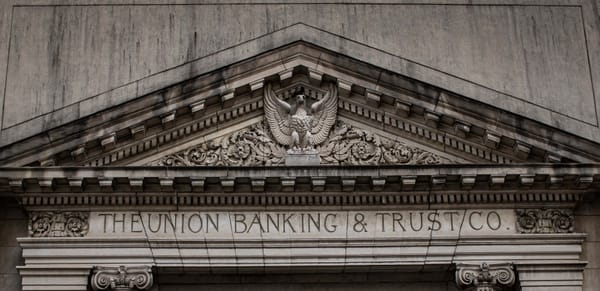With the cost of living soaring and a potential recession knocking on our doors, it’s no wonder that business owners are turning to their Chief Financial Officers (CFOs) for advice and support. After all, CFOs are strategic thinkers and financial experts. If anyone can navigate a business through dark times, it’s them.
So, where does that leave you – the CFO currently reading these words and feeling the pressure mounting on your shoulders?
What can you do to prepare for a financial crisis?
In this article, you’ll learn about the most common warning signs that there’s a financial crisis looming and how to prepare for one as the CFO of a company.
Topics covered in this article include:
- What is a financial crisis?
- What are the signs that a financial crisis is on the horizon?
- How can CFOs help businesses prepare for a financial crisis?
What is a financial crisis?
A financial crisis hits when asset prices experience a steep decline in value. This is often paired with both businesses and consumers struggling to keep up with their debts and financial institutions experiencing a significant shortage in liquidity.
Financial crises can be extremely stressful and ominous times. Often, a financial crisis is preceded by signs of an economic boom. Overextension of credit to borrowers is usually on the cards and after the financial crisis hits, you can expect a wave of economic recessions ready to take its place.
8 signs a financial crisis is on the horizon
You don’t need a crystal ball to predict a financial crisis. There are often identifiable signs that such a crisis is on the way. And if you know what to look out for, you can prepare for the aftermath and make strategic decisions to ensure your business survives.
Here are eight signs that a financial crisis or recession could be on the way:
1. Stock market crashes
One of the best ways to predict a recession or financial crisis of any kind is via the health of Wall Street and the stock market. It’s a reliable indicator of just how well (or unwell) the economy is performing. A flourishing stock market is a really good sign. But if stock prices are low across the board with very little sign of recovery, it could signal an approaching recession.
2. Reduced bank capital
Banks struggle to absorb losses during a downturn. If one or more of the ‘big banks’ fail, it could have a domino effect of negative implications across the economy. Setting measures in place to deal with a possible banking crisis is one of the best ways to try and prepare for such an event.
3. Increased private debt
Secured lending on an asset that is overvalued is a potential warning sign of a financial crisis looming. Increased rates mean that businesses and consumers are giving up a portion of their income and finances to pay that interest. This means they’ve got less money in their pockets to spend or invest. Paying off their private debts becomes the priority and spending and investing move down the ladder of importance.

4. Rising inflation
Whilst some level of inflation isn’t always a bad thing, a lot of inflation is not good. Rising inflation leads to more expensive borrowing. This then escalates and makes businesses less likely to borrow money or invest in new software, equipment, or people.
Currently, inflation remains elevated at 9.1%, which is the highest in four decades. Could this be a warning sign that a recession is on the way? That remains to be seen.
5. A drop in real estate
With rising interest rates and mortgage rates in 2022, the housing market is starting to slow down as potential applicants hold out in hopes of lower rates shortly.
A decline in housing construction and sales is a clear sign that a financial crisis could be on the way. CFOs should pay close attention to real estate, whether they’re in the industry or not.
6. A bank run happens
A bank run is like when you see a flock of birds fly away from an area just before a storm hits. Similarly, just before a recession comes tumbling in, many customers will often deposit their money from their banks. They do this over rising concerns that if they leave their money in the bank, it’ll lose value. So, they withdraw their funds and deposits, which can lead to banks potentially struggling to cover the withdrawals.
7. Increased oil prices
In the past, periods when oil prices went through the roof, have led to times of financial crisis or recession. Keep in mind that increased oil prices don’t always mean that there is going to be one. However, it’s worth keeping a close eye on those rising oil digits in the United States and other countries around the world.
8. An inverted yield curve
Inverted treasury yield curves might be a sign that a recession is coming. Yes, treasury bonds are usually very reliable in terms of a long-term investment choice. However, when you notice an inverted yield curve happening, it’s time to get your ducks in a row ASAP.
How CFOs can predict and prepare for a financial crisis
15% of CFOs say they can already see signs of a downturn in their company’s operations. So, what are these CFOs doing to prepare for a potential financial crisis?
Just under 40% of CFOs are already taking action with offensive or opportunistic planning while 25% have created a detailed plan to follow in the event of a financial crisis. It’s worth having some type of plan in action should a financial crisis strike.
However, there are some other things you can do today to help prepare for a financial crisis, some of which include:
Reducing headcount
CFOs are under a lot of pressure to prepare businesses for an economic downturn. One of the main actions they’re taking is reducing headcount. 54% of CFOs agree that a hiring freeze or reduction is an effective method to reduce headcount. Plus, 20% of CFOs have already begun to undertake a hiring freeze, which is food for thought.
Reducing leverage
There are different ways you can reduce leverage such as canceling or delaying investments and retiring debt. This is one of the most common strategies that CFOs use to help prepare for a financial crisis or recession.
Monitor cash flow
Assuming you’re already on top of your company’s cash flow management, it becomes more important than ever to monitor cash flow daily in the run-up to a potential recession. You know what they say, cash is king. And if that’s true, you need to make sure the company has enough cash coming in to support it in the event of an economic downturn. Having an emergency fund and savings accounts to help see the company through is extremely important to prepare for a financial crisis.

Develop good relationships with banks
A financial crisis is the worst time to go to a bank that’s never heard of you and demand help. As the CFO, it’s advised that you work on building good bank relationships way before you ever need financial aid to tie you over. Set up a line of credit early. That way, if your company ever needs financial help, you’ll already have those connections where and when you need them most.
Predictive analytics
Ding dong, it’s time to leverage predictive analytics and data management for all they're worth. Forecast potential scenarios of a financial crisis and create action plans to help your business make the best possible decisions to cope if any of those events were to happen.
Use relevant data to predict how the business will fare in the event of a global financial crisis, for example. You should also locate sources of cash. Don’t worry, we’re not going to send you off on a hunt for buried treasure. But we do advise that you identify sufficient sources of cash sooner rather than later.
Optimize costs
Finally, make optimizing expenses your top priority when preparing for a recession. 79% of mid-market finance leaders say cost optimization is a top priority for them in 2022 and beyond. This isn’t that surprising considering optimizing expenses is one of the best strategies to survive a major financial crisis and there’s no better person for the job than you as the CFO.
You already know where the company is spending money. So, figure out where you can cut costs. Monitor where every dollar is spent and seek out the most cost-effective ways to reduce spending.
For organizations to survive, they must embrace finance transformation, which is why we're launching the State of Finance Transformation Report 2022!
Get the story behind the data and discover how a successful adoption of finance transformation can drive positive change within your organization.
But we can't create this report without your help. Take the survey today.



 Follow us on LinkedIn
Follow us on LinkedIn




